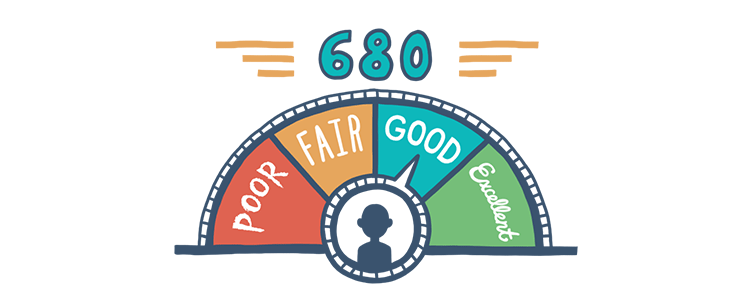About Credit Reporting

Potential homebuyers are constantly hearing about their credit. What their FICO score is, whether it's high enough. But where does this three-digit number come from? Who determines it? We have some answers for you.
What Is a FICO Score?
Your FICO score comes from an algorithm that uses a person's credit history to arrive at a number that reflects how creditworthy they are. The Fair Isaac Corporation debuted this formula in the 1950s and it has since become the most widely accepted credit score in the U.S. There have been a number of changes made to the original algorithm over time, making the scoring system fair to both lenders and consumers.
The FICO Factors
While we don't know the formula used to calculate the FICO scores, we do know it is based on 5 factors: the timeliness of your payments (which accounts for 35% of your score), the total debt you carry (counts for 30%), the age of your credit (15%), how frequently you apply for loans (10%), and the type and variety of debt you have (10%).
It's also important to note what doesn't affect your FICO scores. While credit applications can affect the score, "soft" credit checks do not. The score is not based on sex, race, marital status, religion, nationality, or age. Information about where you live, your job, salary, or the interest rates on your credit accounts is not factored into the score either.
All three major credit bureaus in the U.S.—Equifax, Experian, and TransUnion—calculate credit scores using FICO's algorithm and information they have collected about people's credit history.
What Are Credit Bureaus?
Credit Bureaus collect and maintain consumer credit information. Equifax, Experian, and TransUnion are the main credit bureaus operating in the U.S. as publicly traded, for-profit companies. Also known as Credit Reporting Agencies (CRAs), these bureaus compile information about your credit history—receiving it from lenders and pulling information from public records. They then sell this to other businesses as a credit report on each consumer. CRAs also apply the FICO equation to their reports to generate your credit score, so lenders can determine your creditworthiness.
Keep in mind that credit bureaus are not the ones making the decisions to grant you credit or determining your interest rate. Rather, they give lenders you do business with the tools and information to make those decisions.
Regulating the Bureaus
The U.S. government has introduced legislation in the form of the Fair Credit Reporting Act (FCRA) to monitor practices at credit bureaus. This act regulates how CRAs, including Experian, TransUnion, and Equifax, can and must operate. Because of the sensitive information these bureaus have access to and share about American citizens, they are strictly monitored by the Federal Trade Commission.

FHA Loan Articles
November 2, 2021Interest rates started to decline in 2019 and still seem considerably low. The average rate for a 30-year, fixed rate home loan has fallen from 4.94% in November 2018 to 3.13% in October 2021. A point drop in your interest rate could translate to huge savings with each monthly payment
October 16, 2021The FHA’s aim is to make homeownership more affordable and accessible for Americans, and it has been doing so for decades. It insures home loans made by FHA-approved lenders so borrowers can purchase single-family and multi-family homes in the US and its territories.
September 20, 2021A down payment is an upfront installment or part of a larger amount paid on a purchase. The remainder is paid off in separate installments, usually with interest, as part of a loan. The down payment represents your initial ownership stake in the home you continue to make payments on.
September 2, 2021For many first-time home buyers, the FHA loan is a popular option. With its lenient credit and income requirements, it appeals to young borrowers who don’t have an extensive credit history, or enough money saved up for a down payment.
August 9, 2021Many first-time homebuyers need some help understanding and navigating the ins and outs of the mortgage process, and down payments are an essential part of that. A down payment is an upfront installment made on a large purchase while the remainder is paid off with a loan.
July 14, 2021Making the decision to buy a house is a big one, followed by the choice of which house to buy. The next biggest decision you make is going to be the type of home loan you need to go through with the purchase. One option for financing your home is an FHA loan.








